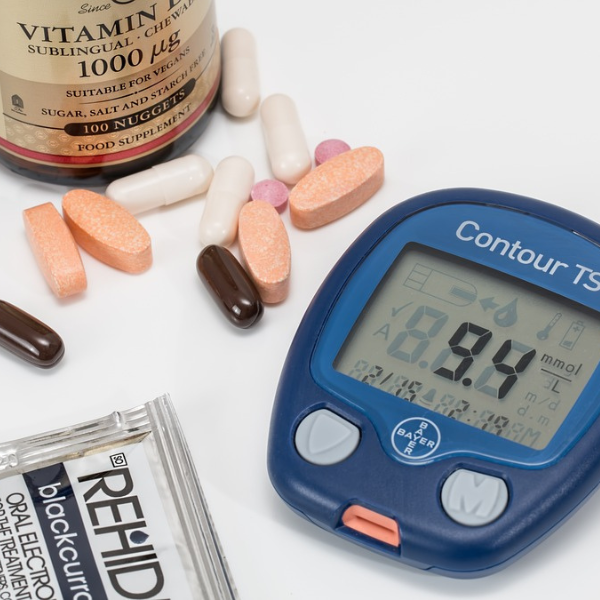Before we discuss about the 10 Best Health Benefits of Cinnamon for Diabetes, we will see what is Cinnamon? It is a highly aromatic spice derived from the inner bark of trees belonging to the Cinnamomum genus. There are several species of cinnamon trees, but the most commonly used varieties are Cinnamomum verum (also known as Ceylon cinnamon or true cinnamon) and Cinnamomum cassia (commonly referred to as cassia cinnamon).
The process of harvesting cinnamon involves peeling off the outer bark of the tree, revealing the inner bark, which is then dried and rolled into cinnamon sticks, or ground into cinnamon powder. Ceylon cinnamon is considered to have a sweeter and more delicate flavor compared to cassia cinnamon, which has a stronger, spicier taste.
Cinnamon has been prized for centuries for its culinary and medicinal properties. It is commonly used as a spice to add flavor and aroma to sweet and savory dishes, including baked goods, curries, desserts, and beverages. In addition to its culinary uses, cinnamon has a long history of use in traditional medicine systems, such as Ayurveda and traditional Chinese medicine, where it is believed to have various health benefits.
The characteristic flavor and aroma of cinnamon are attributed to its unique chemical composition, which includes compounds such as cinnamaldehyde, eugenol, and cinnamic acid. These bioactive compounds not only contribute to cinnamon’s distinct taste and smell but also confer its therapeutic properties, including antioxidant, anti-inflammatory, and antimicrobial effects.
In modern times, cinnamon continues to be valued for its potential health benefits, particularly in relation to blood sugar control, heart health, and cognitive function. It is available in various forms, including cinnamon sticks, ground cinnamon powder, and cinnamon essential oil, and is widely used in both culinary and wellness applications. However, it’s important to use cinnamon in moderation, as excessive consumption may lead to adverse effects, especially in individuals with certain medical conditions or those taking medications.
Table of Contents
Best Health Benefits of Cinnamon for Diabetes
Anti-oxident Properties
Antioxidant Properties: Cinnamon is renowned for its potent antioxidant properties, attributed to its high concentration of polyphenols. These antioxidants help combat oxidative stress by neutralizing free radicals in the body, thereby protecting cells from damage. By reducing oxidative stress, cinnamon may help lower the risk of chronic diseases such as heart disease, cancer, and neurodegenerative disorders like Alzheimer’s disease.
Anti-Inflammatory Effects
Anti-Inflammatory Effects: One of the best health benefits of cinnamon for diabetes is its ability to exert anti-inflammatory effects in the body. Cinnamaldehyde, the main active compound in cinnamon, has been shown to inhibit inflammatory pathways and reduce the production of inflammatory molecules. This anti-inflammatory action may help alleviate symptoms associated with inflammatory conditions such as arthritis, while also lowering the risk of chronic inflammation-related diseases.
Improved Insulin Sensitivity
Improved Insulin Sensitivity: Best Health Benefits of Cinnamon for diabetes has been extensively studied for its potential role in improving insulin sensitivity and glucose metabolism. Research suggests that cinnamon can enhance insulin signaling pathways in cells, leading to increased uptake of glucose from the bloodstream into tissues. By improving insulin sensitivity, cinnamon may help regulate blood sugar levels and reduce the risk of insulin resistance and type 2 diabetes.
Lower Blood Sugar Levels

Lower Blood Sugar Levels: Several clinical trials have demonstrated that cinnamon supplementation can lead to significant reductions in fasting blood sugar levels and hemoglobin A1c levels in individuals with type 2 diabetes. The bioactive compounds in cinnamon, such as cinnamaldehyde and procyanidins, are thought to enhance glucose uptake and utilization by cells, resulting in improved glycemic control.
Reduced Risk of Diabetes
Reduced Risk of Heart Disease: This is the Best Health Benefits of Cinnamon for diabetes and non diabetes as well. Cinnamon may confer cardiovascular benefits by lowering risk factors associated with heart disease. Studies have shown that cinnamon can reduce levels of total cholesterol, LDL cholesterol, and triglycerides, while increasing levels of HDL cholesterol, the “good” cholesterol. These lipid-modifying effects, along with its anti-inflammatory and antioxidant properties, contribute to improved heart health and reduced risk of cardiovascular events.
Antimicrobial Properties
Antimicrobial Properties: Cinnamon possesses potent antimicrobial properties that can help fight against various pathogens, including bacteria, viruses, and fungi. Cinnamaldehyde, the main active compound in cinnamon, has been found to exhibit antimicrobial activity against a wide range of microorganisms. This antimicrobial action makes one of the best health benefits of Cinnamon for diabetes and non diabetes. Cinnamon beneficial for oral health, is preventing bacterial growth in the mouth, as well as for food preservation, inhibiting the growth of spoilage-causing microbes.
Neuroprotective Effects
Neuroprotective Effects: Emerging research suggests that cinnamon may exert neuroprotective effects and help prevent or slow the progression of neurodegenerative diseases such as Alzheimer’s and Parkinson’s disease. Cinnamon’s antioxidant and anti-inflammatory properties are believed to play a role in protecting brain cells from damage and reducing neuroinflammation, thereby preserving cognitive function and neuronal integrity.
Improved Digestive Health
Improved Digestive Health: Cinnamon has long been used in traditional medicine to aid digestion and alleviate gastrointestinal discomfort. It may help stimulate digestive enzymes, promote gastric motility, and reduce gas and bloating. Additionally, cinnamon has been shown to possess carminative properties, which can help alleviate symptoms of indigestion and flatulence. This is one of the Best Health Benefits of Cinnamon for diabetes.
Potential Cancer Prevention
Potential Cancer Prevention: Preliminary studies have suggested that cinnamon extracts may possess anticancer properties and could inhibit the growth and spread of cancer cells. Cinnamon’s bioactive compounds, including cinnamaldehyde and procyanidins, have been shown to induce apoptosis (programmed cell death) in cancer cells and inhibit tumor growth in animal and laboratory studies. However, more research is needed to fully understand cinnamon’s potential role in cancer prevention and treatment.
Weight Management Support
Weight Management Support: This is one of the Best Health Benefits of Cinnamon for diabetes. Cinnamon may aid in weight management by helping to regulate blood sugar levels and reduce cravings for sugary foods. By improving insulin sensitivity and glucose metabolism, cinnamon can potentially prevent spikes in blood sugar levels and subsequent crashes, which often lead to increased hunger and cravings for high-calorie foods. Additionally, cinnamon’s ability to enhance satiety and reduce appetite may further support weight loss efforts when combined with a healthy diet and lifestyle.
These evidence-based health benefits of cinnamon highlight its versatility as a natural remedy with numerous potential applications for promoting overall health and well-being. Incorporating best health benefits of Cinnamon for diabetes, cinnamon into your diet as part of a balanced and varied eating plan may offer a range of therapeutic effects, from improving blood sugar control to protecting against chronic diseases and supporting digestive health. However, it’s important to consume cinnamon in moderation and as part of a healthy lifestyle, while also consulting with a healthcare professional, especially if you have any underlying health conditions or are taking medications.





